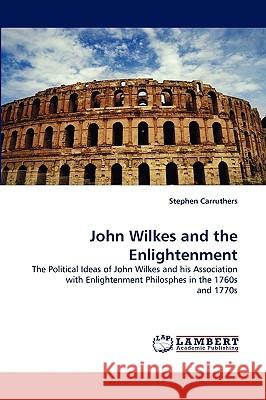John Wilkes and the Enlightenment » książka
John Wilkes and the Enlightenment
ISBN-13: 9783838342528 / Angielski / Miękka / 2010 / 64 str.
On the basis of a limited literary output and a scandalous reputation, historians have often marginalised John Wilkes's role in the development of radical political ideas in England in the 1760s and 1770s. This monograph re-evaluates Wilkes's contribution in the context of his association with the radical Enlightenment. Firstly it examines Wilkes's collaboration with the poet Charles Churchill on the North Briton and Wilkes's Introduction to the History of England written in exile. Secondly, it examines Wilkes's extensive association with leading philosophes - and in particular d'Holbach, Diderot, Suard, Helvetius, and Chastellux - reflected in correspondence and political writings. Thirdly, it argues Wilkes in his public life promoted libertarian rather than libertine values. In conclusion, Wilkes is seen as a cosmopolitan and principled figure whose political ideas converged with those of contemporary philosophes. This study will be of interest to students of history and political ideas for its novel focus on the development of Wilkes's political ideas and campaigns in the context of his interaction with leading figures of the radical Enlightenment."
On the basis of a limited literary output and a scandalous reputation, historians have often marginalised John Wilkess role in the development of radical political ideas in England in the 1760s and 1770s. This monograph re-evaluates Wilkess contribution in the context of his association with the radical Enlightenment. Firstly it examines Wilkess collaboration with the poet Charles Churchill on the North Briton and Wilkess Introduction to the History of England written in exile. Secondly, it examines Wilkess extensive association with leading philosophes - and in particular dHolbach, Diderot, Suard, Helvétius, and Chastellux - reflected in correspondence and political writings. Thirdly, it argues Wilkes in his public life promoted libertarian rather than libertine values. In conclusion, Wilkes is seen as a cosmopolitan and principled figure whose political ideas converged with those of contemporary philosophes. This study will be of interest to students of history and political ideas for its novel focus on the development of Wilkess political ideas and campaigns in the context of his interaction with leading figures of the radical Enlightenment.











